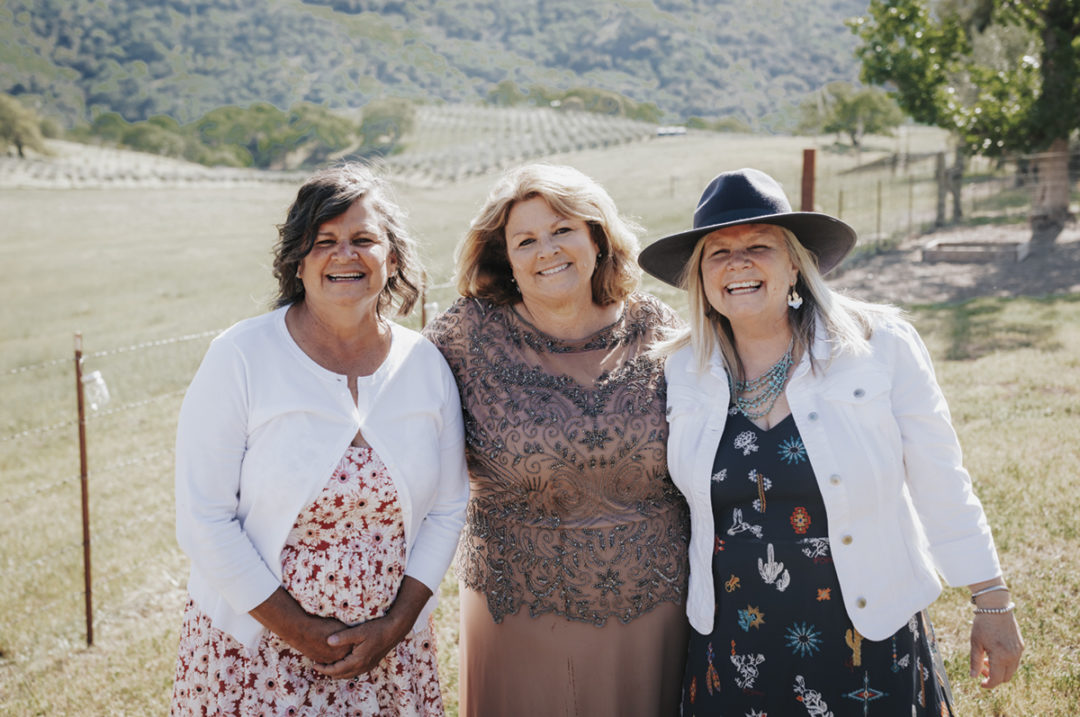Transitioning the farm to the next generation is a natural process. Yet, it can be challenging to have conversations about what happens next – especially if the current owners and the next generation aren't on the same page.
Mary Campbell and Jenna Muller have witnessed these challenges firsthand at dozens of farm transition meetings. They are agricultural mediators. As neutral parties, they're trained in how to make tough conversations easier.
Nancy Mueller of 3 Calhoun Sisters' Ranch in Livermore, California, says after feeling stuck, mediation helped their family have productive conversations about the future.
“We were able to improve our communication skills and conduct the most difficult of conversations with their unbiased support,” Mueller says. “Their agricultural backgrounds helped immeasurably with a variety of very complicated topics, and their assistance has helped us overcome overwhelming challenges. We are extremely grateful for their continued support and that this service is free.”
Agricultural mediation programs exist in 43 states across the U.S. Since 1988, the programs have helped those in the agriculture industry resolve issues informally and for free, without the transaction costs associated with the legal system. It’s also confidential, so farmers can feel open to exploring all solutions. Campbell and Muller work as mediators for the California Agricultural Mediation Program (CALAMP).
“As mediators, we don’t determine who is legally right or the path forward. We encourage open discussion and leave the decision-making up to the parties involved,” Campbell says.
While some agricultural mediators are attorneys who specialize in conflict resolution, others are experienced mediators who focus on agricultural issues. Agricultural mediators have often worked on farms, for agricultural businesses or owned their own operations. Before becoming an attorney, Campbell worked as a farm apprentice and drove tomato trucks. In addition to being a lawyer, Muller is also a farm owner who understands the challenges of succession planning.
"As a retiring farmer, you've worked hard to build your business. You want to ensure that your farm continues to operate and is passed down for generations to come. Yet, it can be difficult to let go," Muller says. "As a potential farm successor, you may be excited about new ideas and ownership responsibilities, but you get frustrated when change doesn't happen as quickly as possible."
Campbell and Muller say a major trap they see farmers fall into is putting off conversations about the future.
"As soon as you start thinking about the farm's future or you have questions about what comes next, it's time to have a conversation with everyone in the business who might be involved in the transition," Campbell says. "This helps prevent hurt feelings and misunderstandings."

Courtesy photos.
Matt Strassberg is an agricultural mediator and director of the Vermont Agricultural Mediation Program (VTAMP). Strassberg has over 30 years of experience in environmental law and mediation. He says farmers often ask if they will have to talk about their feelings during mediation and want to stick to business.
"Sometimes mediation focuses solely on making the best economic decision under the circumstances and has little to do with emotions or feelings," Strassberg says. "More often than not, we find that the substantive issue was stressing the relationship between the parties. Once we help the parties find some common ground, they can reconnect with one another as business partners, neighbors or community members."
Strassberg says each mediation is different, and the circumstances in each case are unique. Ultimately, the goal of mediation is to end the conflict and create tangible results. Strassberg says recent data show success rates of over 80% when mediation is tried before resorting to litigation or other dispute resolution methods.
As the average age of farmers in the U.S. continues to rise, agricultural mediators offer these five tips to help make farm transition conversations more productive.
-
Have a champion who can bring people together. It is essential to have someone at the farm dedicated to moving the process forward. Often, transition conversations are put on the back burner because people get too caught up in day-to-day operations. This person can help make sure the right people are meeting regularly. Farm transition discussions don't have to be limited to family members; they may also involve long-term employees or young farmers outside the business.
-
Recognize each other's points of view. Be honest about your thoughts and feelings. If you're conflicted about letting go of the farm, say so. If you're worried about whether the next generation will be able to handle certain parts of the business, it's okay to talk about that. It is common for family members and stakeholders to have different visions for the future. Share yours and listen to others without judgment. It is important to recognize each other's point of view as valid, whether you agree with it or not.
-
Understand the financial picture. The next generation should have access to the finances for the best chance of success. Unknowns can cause issues and prevent a successful transfer. What are the current short- and long-term debts? Who holds the title to the land? How is the existing business structured? Sometimes these questions have complicated answers, and it's best to explore them while everyone is healthy and can make informed decisions.
-
Write down your rough draft for the transition of assets and management. With an understanding of the motivations and desires of all participants, you can develop a vision or plan. Write down your ideas to ensure everyone is on the same page. This draft will help you finalize the transition with a lawyer or financial adviser. A financial professional can help you better understand your options and what would be best for your situation.
- Get help as needed from a facilitator. A facilitator or mediator with experience in family coaching and succession planning helps create a sense of fairness. They'll help set the agenda at family meetings, ensure nothing is missed and help reluctant participants become more involved.
Types of issues that qualify for free mediation
In addition to transition planning, farmers can resolve a wide variety of issues with free mediation.
"Farmers can run into problems with banks, creditors (such as feed dealers), USDA or other entities," Strassberg says. "Both sides often try everything to fix the problem on their own but aren't able to make the progress they hoped for. Mediation helps parties resolve their differences and negotiate agreements, regardless of the situation."
The list of agricultural issues eligible for free mediation varies by state. Free mediation is often available for farm loans, credit issues, family farm transitions, farmer-neighbor disputes, land and equipment leases, organic certification, pesticide issues, USDA farm and conservation programs, USDA rural development loans and wetlands determinations.
Find your state mediation program and learn more here. To learn more from Campbell and Muller about mediation, listen to this episode of the Progressive Dairy Podcast.







